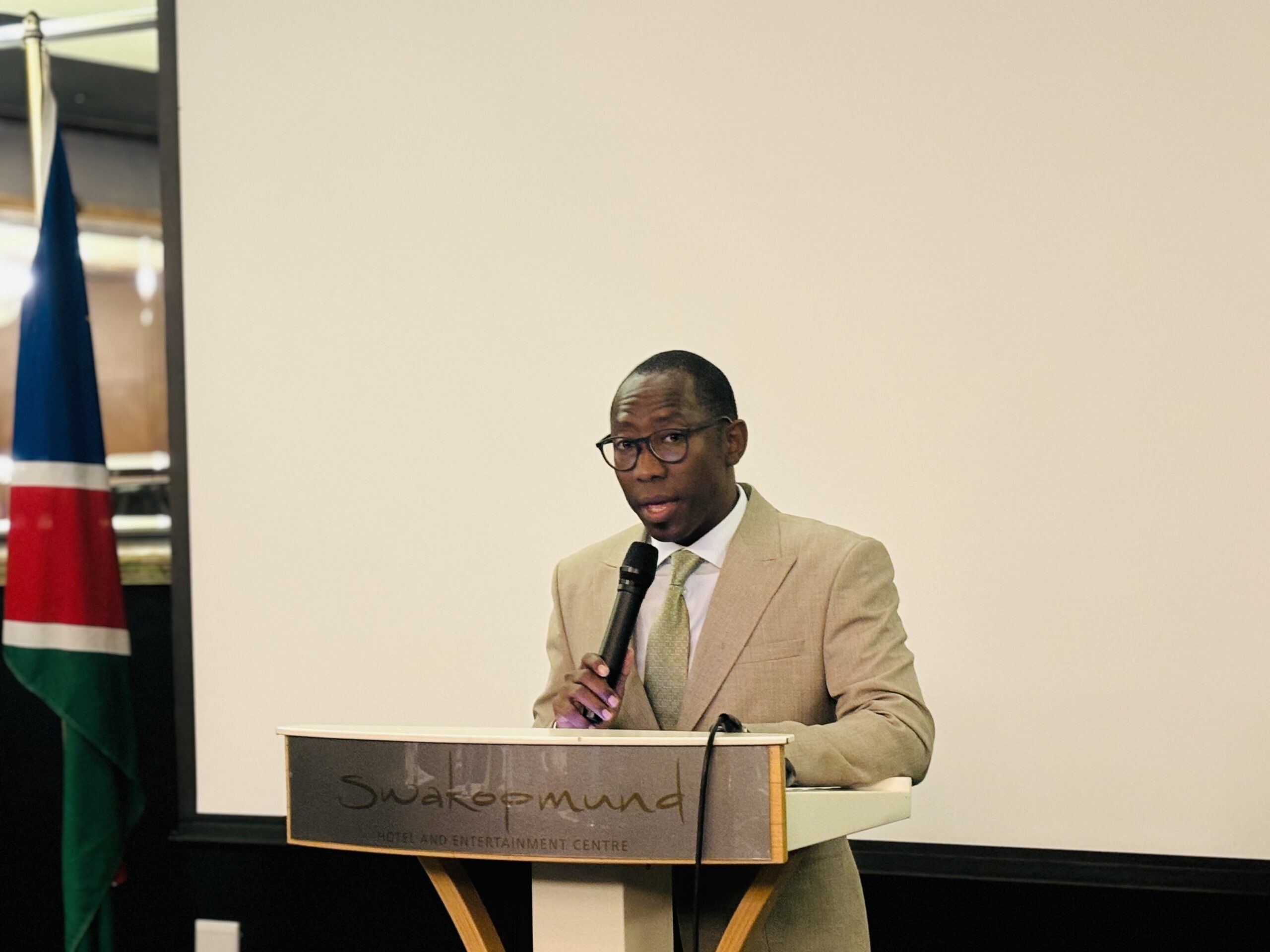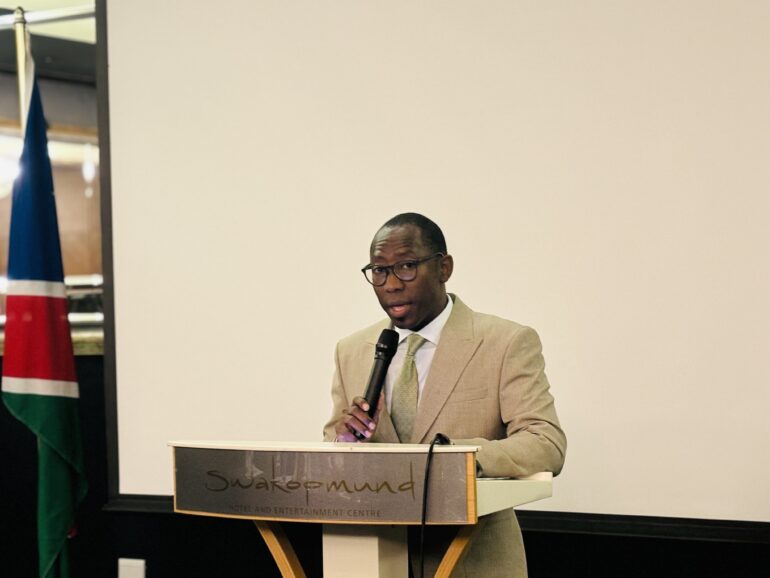Omanyano ovanhu koikundaneki yomalungula kashili paveta, Commisiner Sakaria takunghilile
Veronika Haulenga
Omanyano ovanhu koikundaneki yomalungula kashili paveta, Commisiner Sakaria takunghilile
Veronika Haulenga
Listeners:
Top listeners:
-
play_arrow
Omanyano ovanhu koikundaneki yomalungula kashili paveta, Commisiner Sakaria takunghilile Veronika Haulenga
Urgent need to relieve land degradation affected communities


There is a need to relieve pressure on communities experiencing overcrowding of livestock and land degradation, hence the government’s commitment to protect resettlement is a fundamental aspect of social justice.
According to Erongo Governor, Neville Andre Itope, there is a collective belief that if the above aspects are improved in the newly approved Resettlement Policy of 2023, the land reform programme will deliver the desired results.
Itope was speaking at the one-day Erongo Regional Consultative Meeting on the Review of the Resettlement Criteria under the Resettlement Policy of 2023 in Swakopmund on Wednesday.
The meeting was aimed at addressing the challenges and finding practical solutions for the equitable resettlement of the people. It also aims to review and refine the existing national resettlement criteria to address any gaps or challenges that may be hindering its effectiveness.
‘Our dispossessed communities are calling for accelerated land delivery, and the youth is calling to be allocated land to drive economic development.
On the other hand, our national interest is also to promote and empower women, marginalised people, vulnerable groups, and to continue the integration of veterans into a productive society,’ the governor noted.
The National Resettlement Policy of 2001 was developed with the aim of making the beneficiaries self-reliant in terms of food production, self-employment, and income-generating skills.
The policy was, however, deemed ineffective in addressing the issue of land redistribution, especially given the lack of its review since its inception.
Itope, therefore, urged attendees of the workshop to also ensure that at the end of the gathering, they have aligned the criteria to cater for dispossessed communities, youth and women, marginalized groups, and generational farm workers, among others, in line with the spirit of the second National Land Conference.
Director of Land Reform and Chairperson of the Resettlement Criteria Committee in the Ministry of Agriculture, Water and Land Reform, Nangolo Petrus Canisius, said the policy is a legal document that requires inputs from the public in every democratic country.
‘The call to review the implementation also comes as a response to queries raised during the first and second National Land Conferences. Additionally, the population has also grown since then,’ he noted.
(NAMPA)
IB/HP/EK
(NAMPA)
Written by: Staff Writer
dispossessed communities Erongo Region Land livestock and land degradation Ministry of Agriculture Namibia Nangolo Petrus Canisius Neville Andre Itope Resettlement Policy Water and Land Reform
Similar posts
Two killed by lightning in Zambezi Region
(Contributed Photo) By: Jackson Kunatela Two people died on Saturday after being struck by lightning in Zambezi Region. A Zambian man, identified as Musipili Katembo, died on the spot, while Katenda Ednar succumbed to her injuries at home after being discharged from the hospital. According to the police incident report, […]
Windhoek Weather
Most popular

Mbumba signs off new benefits for retired political office bearers

Former FNB employee arrested after defraud pensioner off N$215, 000

Namdia Heist: More questions, lots of confusion

Omuhwahwameki Michael okuunganeka oshikonga shoku patitha oostola dho Rani moshilongo ashihe.

Windhoek woman loses N$60,000 to fraudsters
Copyright 2025 Future Media (Pty) Ltd | Website by Digital Platforms
Tel: +264 83 000 1000 | Email: news@futuremedia.com.na




